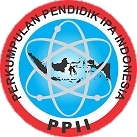Assessing the Effectiveness of Case-Based Learning on Students’ Attitudes Toward Chemistry and Formal Reasoning in Acid-Base Topics
DOI:
https://doi.org/10.15575/jtk.v9i2.34434Keywords:
acid-base, attitudes towards chemistry, case based learning, students' formal reasoningAbstract
Effective teaching strategies are critical in enhancing students’ attitudes toward chemistry and formal reasoning abilities, particularly for complex topics like acids and bases. Case-based learning has emerged as a promising alternative to traditional scientific learning methods. This study aims to compare the differences in attitudes toward chemistry and formal reasoning skills between students exposed to case-based learning and those undergoing scientific learning on acids and bases. A quasi-experimental design with a posttest-only control group was applied to 122 student of 11th grade science students in Yogyakarta, selected using simple random sampling. Data were collected through case-based essay questions and attitude questionnaires. Multivariate analysis (Hotelling’s Trace) assessed the differences between groups. The analysis revealed a significant difference (p = 0.000 < 0.05) in attitudes and formal reasoning skills between the two groups. Students in the case-based learning group demonstrated significantly better attitudes toward chemistry compared to those in the scientific learning group. These findings highlight the potential of case-based learning to enhance students’ engagement and reasoning skills in chemistry. By integrating case-based approaches into acid-base learning, teachers can adopt alternative methods to improve student outcomes. This study underscores the importance of diversifying teaching strategies to address the challenges of complex scientific topics effectively.References
Abulude, O.F. (2016). Teacher’s and student’s attitudes toward chemistry in selected secondary schools in akure south local government area in Ondo State, Nigeria. Nigeria: Chapter Seven of Knowledge for Global Development.
Aiken, L. R. (1999). Personality assessment: methods and practices. Toronto: Hogrefe & Huber Publishers.
Bagdasarov, Z., Harkrider, L.n., Johnson, J.F., Macdougall, A.E., Devenport, L. D., Connelly, S., et al., (2022). An investigation of case-based instructional strategies on learning, retention, and ethical decision-making. Journal of Empirical Research on Human Research Ethics. 7(4), 79-86. https://doi.org/10.1525/JER.2012.7.4.79.
Bansal, M., & Goyal, M. (2017). To introduce and measure the effectiveness of case based learning in physiology. International Journal of Research in Medical Sciences, 5(2), 437–445. https://doi.org/10.18203/2320-6012.ijrms20170043
Barron, B, & Darling, H.L. (2018). Teaching for meaninglful learning. Quiry-based and cooperative learning. https://doi.org/10.12691/education-3-1-9.
Belford, R., & Herreid, C. (2013). ConfChem conference on case-based studies in chemical education: an online conference. Journal of Chemical Education, 90, 248-255. https://doi.org/10.1021/ed200775e.
Bodner, G. M., & McMillen, T. W. (2020). Teaching formal reasoning skills in chemistry: A review and critique. Chemistry Education Research and Practice, 21(4), 715-731. https://doi.org/10.1039/D0RP00089J
Boone, W. J., Staver, J. R., & Yale, M. S. (2014). Rasch analysis in the human sciences, Berlin: Springer Science & Business Media. https://doi.org/10.1007/978-94-007- 6857-4_8
Cam, A., & Geban, O. (2016). Effectiveness of case-based learning instruction on pre- service teachers’ chemistry motivation and attitudes toward chemistry. Research in Science and Technological Education, 35(1), 74–87. https://doi.org/10.1080/02635143.2016.1248927.
Dewi., Citra, A., & Hamid, A. (2019). Pengaruh model case based learning (cbl) terhadap keterampilan generik sains dan pemahaman konsep siswa kelas x pada materi minyak bumi. Jurnal Ilmiah Pendidikan Kimia, 3(2), ISSN 2338-6480. Retrieved from https://e-journal.undikma.ac.id/index.php/hydrogen/article/view/687
Fowler, A., & Patel, D. (2021). Developing formal reasoning in chemistry through inquiry-based learning. Journal of Chemical Education, 98(3), 601-608. https://doi.org/10.1021/acs.jchemed.0c00987
Hair, J.F., Black, W.C., Babin, B.J., & Anderson, R. E. (2010). Multivariate data analysis (Sevened). Upper Saddle River, NJ Prentice Hall: Pearson.
Herreid, C. F. (2013). ConfChem conference on case-based studies in chemical education: the future of case study teaching in science. Journal of Chemical Education, 90, 256–257. doi:10.1021/ed2008125.
Holme, T. A., Luxford, C. J., & Brandriet, A. (2015). Defining conceptual understanding in general chemistry. Journal of Chemical Education, 92(9), 1477-1483. Retrieved from https://pubs.acs.org/doi/full/10.1021/acs.jchemed.5b00218
Ismaimuza, D. (2010). The effect of problem based learning with cognitive conflict strategies on mathematical critical thinking ability and attitudes of junior high school student. Jurnal Pendidikan Matematika UNSRI, 4(1). Retrieved from https://eprints.uny.ac.id/24194/
Khan, N. A., Venkatachalam, V. V, Al Akhali, K. M., Alavudeen, S. S., Dhanapal, C. K., Ansari, A., Mohammad, S., et al. (2015). Overview of glycemic control, knowledge, awareness and attitude among type-2 diabetes male patient’s. Noohu at el.. Journal of Applied Pharmacy, 7(1), 75– 82. Retrieved from https://www.japharmacy.ca/
Koballa, T. R., & Tippins, D.J. (2017). Cases in middle and secondary science education. Upper Saddle River, NJ: Pearson Merrill Prentice Hall. https://doi.org/10.1002/sce.20400.
Lai, E. L., & Hsu, Y. S. (2022). 21st century skills for global competence: The role of education. Journal of Educational Technology & Society, 25(1), 42-55. https://doi.org/10.2307/26791517
Lawson, A. E., & Worsnop, R. A. (2022). Improving formal reasoning skills in high school chemistry students: A longitudinal study. Research in Science Education, 52(5), 1319-1336. https://doi.org/10.1007/s11165-021-09952-1
Mahdi, J. G. (2014). Student attitudes towards chemistry: An examination of choices and preferences. American Journal of Educational Research, 2(6), 351-356. https://doi.org/10.12691/education-2-6-3
Minghong, B., Zhao, Z., Yang, J., & Wang, Y. (2019). Comparison of case-based learning and traditional method in teaching postgraduate students of medical oncology. Medical Teacher, 4(1). https://doi.org/10.1080/0142159X.2019.161 7414.
Nordin, A. & Chin, M. T. (2010). Pemahamaan konsep pelajar tingkatan empat dalam tajuk ikatan kimia di skudai johor. Thesis, Chemistry Education: Universiti Teknologi Malaysia. Retrieved from https://core.ac.uk/display/11786605
Ozdilek, Z. (2015). Teaching the properties of chromium’s oxidation states with a case study method. Chemistry Education Research and Practice, 16(1), 39–52. https://doi.org/10.1039/C4RP00176A
Rutjens, B. T., Heine, S. J., Sutton, R. M., & van Harreveld, F. (2018). Attitudes towards science. Advances in experimental social psychology. 57, 125-165. https://doi.org/10.1016/bs.aesp.2017.08.001
Savery, J. R. (2015). Overview of probem-based learning: definitions and distinchtions. Interdisciplinary. Journal of Problem-Based Learning, 1(1). https://doi.org/10.7771/1541-5015.1002.
Schleicher, D. J., Baumann, H. M., Sullivan, D. W., & Yim, J. (2019). Evaluating the effectiveness of performance management: A 30-year integrative conceptual review. Journal of Applied Psychology, 104(7), 851. https://doi.org/10.1037/apl0000368
Slameto. (2010). Belajar dan faktor-faktor yang mempengaruhi. Jakarta: Rineka Cipta.
Slavin, R. E. (2018). Educational psychology: theory and practice. Ho Chi Minh: Pearson.
Steinberg, R & Sebastian, C. (2013). Undertsanding and affecting science teacher candidates' scientific reasoning in introductory astrophycics. American Physical Society, 9(2). http://dx.doi.org/10.1103/PhysRevSTPER.9.020111
Sumintono, B., & Widhiarso, W. (2015). Aplikasi pemodelan rasch pada assesment pendidikan. Bandung: Trim Komunikata.
Tarkin, A., & Uzuntiryaki, K.E. (2017). Implementation of case-based instruction on electrochemistry at the 11th grade level. Chemistry Education Research and Practice, 18(4), 659–681. https://doi.org/10.1039/c7rp00062f.
Wan, Y. f., & Mat, A. Z (2018). Attitude towards learning chemistry among secondary school students in malaysia. Asian Journal of Behavioural Studies, 3(9), 63-70. https://doi.org/10.21834/ajbes.v3i9.61
Widoyoko, E. P. (2013). Teknik Penyusunan Instrumen Penilaian (1st ed., Vol. 1). Yogyakarta: Pustaka Belajar.
Downloads
Published
Issue
Section
License
Authors who publish with this journal agree to the following terms:
- Authors retain copyright and grant the journal right of first publication with the work simultaneously licensed under a  Creative Commons Attribution-ShareAlike that allows others to share the work with an acknowledgement of the work's authorship and initial publication in this journal.
- Authors are able to enter into separate, additional contractual arrangements for the non-exclusive distribution of the journal's published version of the work (e.g., post it to an institutional repository or publish it in a book), with an acknowledgement of its initial publication in this journal.
- Authors are permitted and encouraged to post their work online (e.g., in institutional repositories or on their website) prior to and during the submission process, as it can lead to productive exchanges, as well as earlier and greater citation of published work (See The Effect of Open Access).








